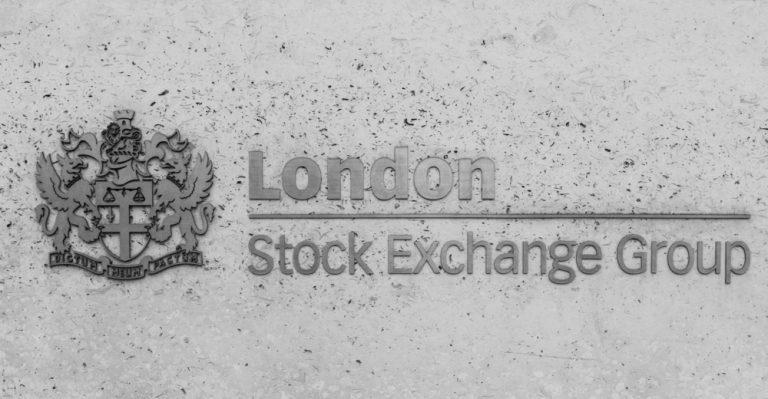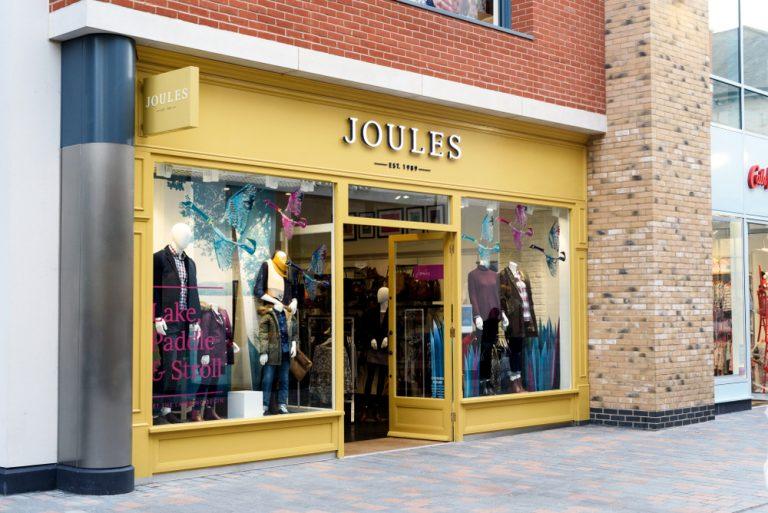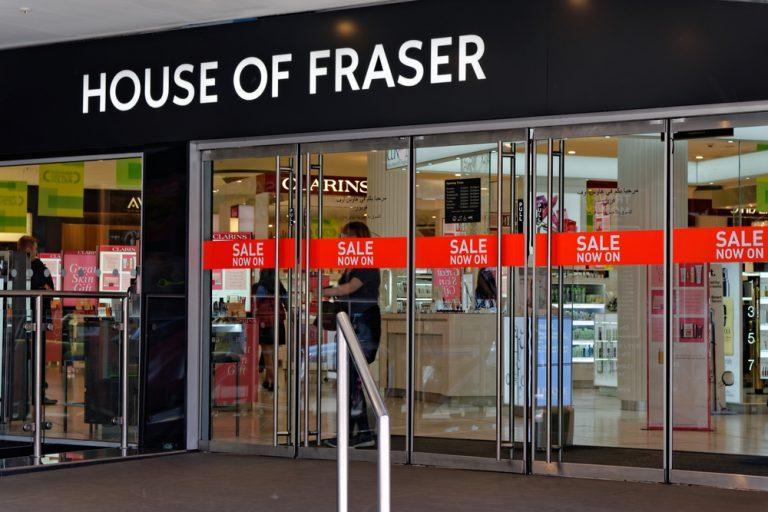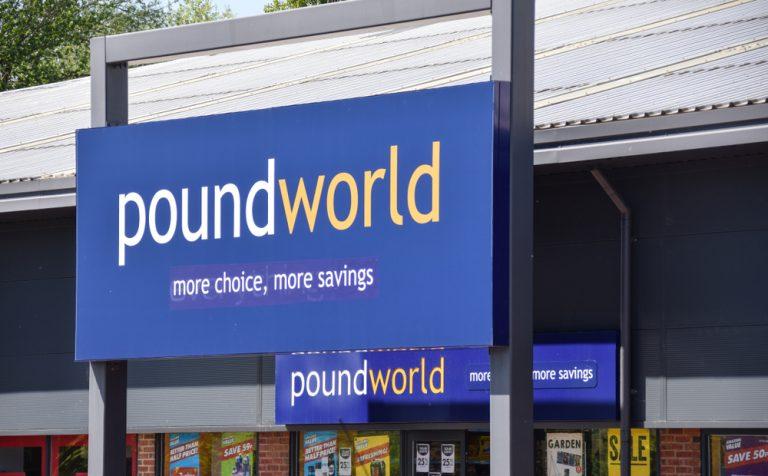Appscatter shares rise on maiden revenue report
App distribution platform Appscatter (LON:APPS) reported its maiden earnings on Thursday, after generating its first annual revenue.
The group, whose SaaS platform integrates with app stores to allow apps to maximise their distribution, reported full year revenues of £1.9 million. Its cash balance rose from £3.8 million to £226 million.
Net losses also narrowed throughout the year, dropping to £5.8 million in the year to the end of December, from £8.8 million the year previously. This comes after the group secured its first paying customers during the period, obtaining 16,835 registered users, by the end of May.
“Alongside investing in our core platform, we have also been successful in agreeing important partnerships with Airpush and IronSource, leaders in our industry who will broaden our horizons and increase our brand-awareness as we continue to focus on expanding our user base,” Philip Marcella, appScatter CEO.
Shares in Appscatter are currently trading up 2.56 percent at 60.00 (1059GMT).
How Reid Green & co generated a 75% return on Citigroup Inc
Sponsored by Reid Green & co
Citigroup Inc is a case study of an investment opportunity Reid Green & co highlighted to our subscribers. Over an 18 months period this idea generated a 75% return.
In this case study we will cover why we found the company attractive, what happened after we covered the stock and how Reid Green & Co approaches the investment problem.
What was it about Citigroup Inc that made Reid Green & Co rate it a buy a $43.15 per share and a sell at $74.05 per share?
What was it about Citigroup Inc that made Reid Green & Co rate it a buy a $43.15 per share and a sell at $74.05 per share?
Citigroup Inc. (Citi) is a financial services holding company. The Company’s whose businesses provide consumers, corporations, governments and institutions with a range of financial products and services, including consumer banking and credit, corporate and investment banking, securities brokerage, trade and securities services and wealth management. In 2016 due to a negative sentiment in the banking sector related to banks’ exposure to commodities which were in the doldrums at the time, Citigroup found itself trading at a 30% discount to its tangible equity and at more than a 40% discount to its reported book value. Some of the discount was also part of a punishment for Citigroup appearing to generate a meagre 8% return on its equity, meanwhile Reid Green & Co thought the correct to look at Citigroup equity was the same way the banking regulators look at their equity. Upon looking at the company’s regulatory equity, which as must lower than its stated equity, we concluded than compared to Citigroup’s earnings it was actually earning closer to 11% of its true equity and factoring the discount this set up an attractive investment situation. An excerpt of what we told our subscribers can be seen below: “However, we think Citigroup’s compliance with US GAAP accounting standards is masking the banks much higher return on equity, as items such preferred stock, deferred tax assets, goodwill and intangible assets bloats the banks equity. When you deduct the $16 billion in outstanding preferred stock and $25.5 billion in intangible assets from the company’s equity, you realise that the bank’s tangible equity is actually $179.5billion or $60.77 per share, which would indicate a return on tangible equity of 9.4%. In spite of the above, the regulators actually have an even more nuanced view on the banks equity, one that we think gets closer to revealing the banks true economic performance. In assessing the banks regulatory equity, not only do the regulators deduct the preferred equity and intangibles, but they also subtract $32 billion of the Citi’s deferred tax assets. This results in $147 billion in regulatory equity or $50per share and when compared to its 2015 net income results in an 11.5% return on equity. This is 50% higher than the headline numbers would suggest. In summary our basic valuation takes into account the fact that the bank generates an 11% return on equity, is well capitalised with 12% in regulatory equity, is growing its core lending business, has $30 billion deferred tax assets which allows it to earn $100 billion of tax-free profits, and its excess earnings either gets returned to shareholder via buybacks or increases the company’s tangible equity.What happen after Reid Green & Co covered the stock?
During October 2017 Citigroup announced: In the first three quarters of the 2017 financial year ended 30 sept Citigroup Inc:- Increased its tangible book value to $68 per share up 13% from $60 in 2015.
- Increased its common equity from 8.7% in 2012 to 13%
- Repurchased 140 million common shares and returned $10.8 billion to shareholders
- Maintained a 9% return on tangible capital and 11% return on regulatory capital
Reid Green & Co looks for situations that have created large mis-pricings.
Although Citigroup Inc was much larger than the typical company we cover today, the investment thesis was a textbook example of what we look for in an investment opportunity. Reid Green & Co seeks out high quality companies, whose stocks prices for one reason or another do not reflect the true value of the business. More often than not we look for situations where there are multiple possible but highly likely catalysts for realising the underlying value. As in Citigroup’s case as long as the company generated earnings the profit would either be added to the company’s balance sheet and thus increase its book value per share or it would be distributed back to shareholders in accretive stock buybacks. Both of which would increase or realise intrinsic value. On behalf of our subscribers Reid Green & Co will continue to look for such opportunities. Claim your 30-Day Free Trial With our no risk 30-day free trial you can experience our investment research service up-front without paying for it During the free trial on top of being able to examine the quality and nature of our reports you will receive at least 1 actionable investment idea you can take advantage of right now. At any point in the free trial you can cancel your subscription. No questions asked. No payment required. Click Here to learn more about the 30-Day Free TrialMorning Round-Up: FTSE delayed, European markets up
The FTSE 100 had a delayed start to Thursday morning, after a technical issue prevented it from opening at its usual time of 8am.
After opening at around 9am, it moved to trade up 0.05 percent. The biggest risers were Auto Trader (LON:AUTO), up 5pc after a strong set of full year results, and Mitie (LON:MTO) and Capita Group (LON:CPI), both up 4.5 percent.
The biggest news on the markets this morning is House of Fraser’s decision to close 31 of its stores, including its London Oxford Street Store. The decision puts 6,000 jobs at risk and follows a period of poor performance for the department store chain.
Fallers included Princess Private Equity (LON:PEYS), down 6 percent, and Puretech (LON:PRTC), trading down 5.5 percent.
The German DAX also rose on Thursday morning, trading up 0.34 percent, with France’s CAC40 up 0.61 percent.
Joules beats high street gloom with strong results
Country clothing brand Joules (LON:JOUL) defied the high street’s doom and gloom with its full year results on Thursday, doing “marginally” better than expected.
Revenues increased by 18.4 percent in the 52-week period to the 27th May, with performance starting strong and continuing on into the Christmas period.
Retail revenue increased by approximately 15.9 percent on the year before, with the group opening 15 new stores in the UK and Republic of Ireland and e-commerce sales flourished.
“Our multichannel approach and ‘buy now, wear now’ product proposition has enabled the Group to deliver a performance ahead of our initial expectations, despite the widely reported challenges in the sector,” said Colin Porter, Chief Executive Officer.
The group, famous for its colourfully printed country clothing, said pre-tax profit was likely to be “marginally” ahead of the prior year of analyst expectations of £12.6 million.
“This performance is testament to the strength and appeal of the Joules brand and our distinctive products,” Porter said.
Shares in Joules are currently up 4.79 percent at 344.75 (0921GMT).
House of Fraser set to close 31 stores
House of Fraser shocked investors and consumers on Thursday by announcing the closure of 31 stores, including its flagship Oxford Street store in London, putting 6,000 jobs at risk.
Frank Slevin, Chairman of House of Fraser said: “Our legacy store estate has created an unsustainable cost base, which without restructuring, presents an existential threat to the business.
“So whilst closing stores is a very difficult decision, especially given the length of relationship House of Fraser has with all its locations, there should be no doubt that it is absolutely necessary if we are to continue to trade and be competitive.”
The company also wants a 25 percent cut in rent at ten stores, with the 31 stores closing set to pay a rent at 30 percent of the current level for seven months.
House of Fraser identified the stores set for closure in a CVA proposal as:
Altrincham, Aylesbury, Birkenhead, Birmingham, Bournemouth, Camberley, Cardiff, Carlisle, Chichester, Cirencester, Cwmbran, Darlington, Doncaster, Edinburgh Frasers, Epsom, Grimsby, High Wycombe, Hull, Leamington Spa, Lincoln, London Oxford Street, London King William Street, Middlesbrough, Milton Keynes, Plymouth, Shrewsbury, Skipton, Swindon, Telford, Wolverhampton, Worcester.
The CVA proposal is still subject to approval.
House of Fraser have been struggling for several months, reporting Q1 results that sounded warning bells for investors. It stands alongside many other high street retailers having a tough time at the moment, including Marks and Spencer and Carpetright.
Auto Trader reports 10pc boost to pre-tax profit
Online car sales site Auto Trader (LON:AUTO) reported a 10 percent rise in pre-tax profit on Thursday, boosted by rising car prices and increased interest in financing deals.
Revenues rose 7 percent in the year to the end of March, hitting £330.1 million. Net external debt fell to £338.7 million from £355 million over the previous period.
The strong performance was boosted largely by increased in used car prices, as well as interest from car retailers in using Auto Trader’s new Deal Finance Product.
‘We took big step in to improve car buying in the UK by launching the Dealer Finance product, allowing consumers to find their next car by monthly payment and retailers to advertise finance on their cars earlier in the buying journey,’ the company said.
“We expect average retailer forecourts to decline at a similar rate to last year” the company added.
Home Trader revenue declined 4 percent to £11.4 million from £12 million. However, the group said it would pay a final dividend of 4p per share, taking the total for the year to 5.9p per share from 5.2p in 2017.
OnTheMarket reports strong start to 2018
Property sales portal OnTheMarket (LON:OTMP) reported an increase in adjusted operating profit for the year to January, alongside a promising performance since the start of 2018.
Adjusted operating profit rose to £3.9 million, up from £2.3 million the previous year, despite sales falling from £17.8 million to £16 million. Operating losses also rose sharply, from £1.2 million last year to £10.8 million during this period.
However, 2018 has been a strong year thus far for OnTheMarket, beginning trading on the AIM market in February and raising £30 milion of capital to support the launch of its growth strategy.
As of 25 May 2018, OTM had signed listing agreements with UK estate and letting agents with more than 8,500 offices, an increase of over 54 percent since admission to AIM.
CEO Ian Springett commented: “We are in the midst of a transformational year for OnTheMarket.
“After listing on AIM in February, we are continuing on our journey to create a genuine alternative to the leading incumbent portals.
“We are strongly encouraged by the growing agent and customer support and feedback to our proposition, and I look forward to carrying this momentum forward in our first financial year as a listed company.”
Shares in OnTheMarket are largely flat on the news, trading up 0.54 percent at 162.88 (0812GMT).
Real Good Food shares fall following open offer announcement
Real Good Food (LON:RGD) announced its intention to launch an Open Offer to raise up to £1 million in capital.
The Liverpool-based company revealed in a statement its intention to launch an Open Offer on Wednesday.
As a result, qualifying shareholders will be able to subscribe for new ordinary shares of 2p each in the capital of the Company at a price of 5p per Ordinary Share.
The food company, which markets cake decoration and baking goods, acquired Brighter Foods as part of a £9 million deal last year.
However, the company has undergone a series of capital raising exercises in the past year, as it continues to struggle to generate cash.
Back in January shares plummeted 40 per cent after the cake decoration company missed previous forecasts.
Real Good Food confirmed the finalisation of £8.2m in new financing arrangements with its three major shareholders back in May of this year.
As part of the agreement, NB and Omnicane will each contribute £3.3 million, with certain funds of Downing providing a minimum of £1.6 million. A further £500,000 may be forwarded at the discretion of Downing prior to September this year.
Hugh Cawley, Chief Executive of Real Good Food said of the latest decision:
“Having recently completed our new financing arrangements with the Company’s three major shareholders, the Board recognised the importance of enabling all shareholders to participate in the refinancing of the Company and is therefore intending to launch the Open Offer accordingly.”
Shares in Real Good Food trading -3.95 percent, as the market reacts to the latest company announcement.
Poundworld rescue deal hangs in the balance as buyer pulls out
Negotiations between Poundworld owners and a potential buyer have broken down, calling into doubt the future of the struggling retailer.
The prospective buyer, Alteri Investors, had been involved in advanced talks with Poundworld’s owner TPG, before later pulling out.
Amid continued difficulties, about 100 of Poundworld’s 355 locations across the UK were already at risk of closure.
Currently, the company employs around 5,300 staff, of whom many may be under threat if the retailer fails to find a resolution to its mounting woes.
Poundworld is the latest in a series of UK retailers feeling the impact of an increasingly challenging trading environment.
After news of the collapse of Toys R Us and Maplins, a number of high street giants have announced a string of store closures in recent weeks.
Carpetright issued its second profit warning for the year in March, as it continues to consider ways to increase its cash flow.
On Wednesday, Carpetright announced it had secured £60 million equity raise, pending shareholder approval, relieving pressure on the retailer.
Similarly, Marks & Spencer recently revealed plans to accelerate the closure of around 100 stores, in a bid to mitigate substantial losses from its struggling home and clothing divisions.
Moreover, earlier this week department store giant House of Fraser was forced to deny speculation of an imminent collapse, after reports said that rescue talks had broken down over the course of the weekend.
The difficulties facing so many well-known retailers over the course of the year has prompted concerns of an impending death of the high street.
Conversely, WH Smith revealed a strong performance offsetting the general decline across the high street.
This was largely attributed to the dominance of its travel division, with WH Smith maintaining a strong presence in the nations airports.
Nevertheless, a general downturn in footfall figures alongside a shift in consumer spending habits has contributed to an increasingly volatile trading climate for some of the nation’s biggest retailers.
Kin Group invest in Bidstack as part of reverse takeover
Kin Group are set to invest in software company Bidstack, as part of a reverse takeover bid.
If successful, the £400,000 investment, which is expected to be completed by August, will see the company return to trading on the AIM market on the London Stock Exchange.
James Draper, Chief Executive of Bidstack, commented: “This is an exciting moment for me and the team. We are looking forward to the completion of the RTO so that we can drive the business forwards to the next stage of our growth.
By obtaining a quotation on the AIM market we believe the RTO will be a great result for our current shareholders, who have supported us over the last three years and will provide us with a firm foundation for continued growth and winning more commercial contracts with the leading publishers and advertising agencies. ”
He added: “We are excited to be kicking off our platform just in time for the FIFA World Cup and looking forward to the prospect of delivering on our ambitious business plans.”
Bidstack is a software firm that has developed technology to place advertising campaigns directly into video games, such as Sega’s popular Football Manager.
The technology facilitates targeted in-game advertising, allowing two gamers playing the same game to experience different advertisements based upon the criteria determined by different brands and campaigns.
The company currently holds the exclusive rights to place direct digital advertising into six games, such as Cricket Captain and Sociable Soccer.
Bidstack launched a successful crowdfunding campaign with Crowdcube back in December of 2015.
The company surpassed its initial target of £100,000, eventually raising a total of £137,590.
According to Crowdcube, the reverse takeover will give 66 of the respective investors in Bidstack to access to all of the trading opportunities that accompany an AIM listing.










